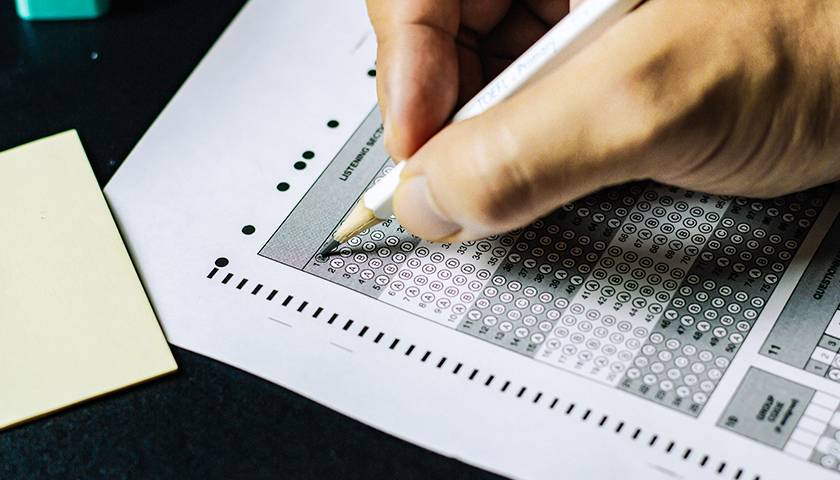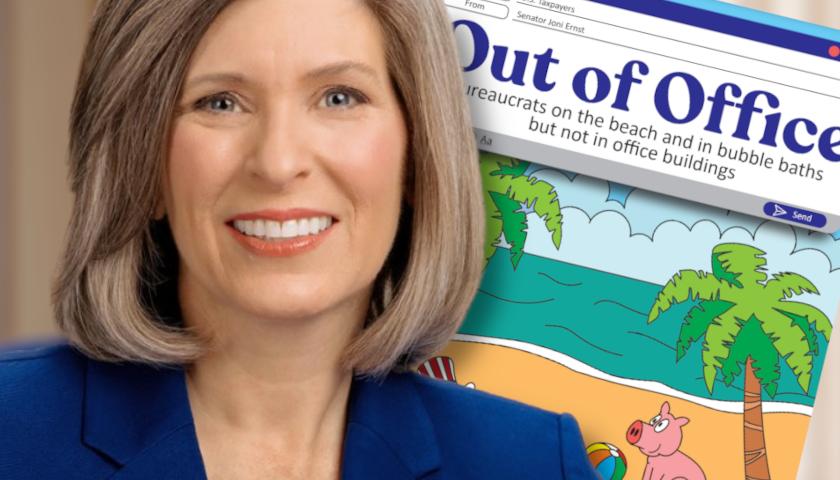Virginia’s 2020-2021 standards of learning (SOL) pass rates are low: 69.34 percent for reading, 54.18 percent for mathematics, and 59.45 percent for science, according to Virginia Department of Education (VDOE) data released Thursday. The VDOE emphasizes that those results are due to COVID-19 and related factors, and followed national trends.
“Pass rates reflect disruptions to instruction caused by the pandemic, decreased participation in state assessment programs, pandemic-related declines in enrollment, fewer retakes, and more flexible ‘opt-out’ provisions for parents concerned about community spread of COVID-19,” the VDOE said.
“The SOL pass rates in 2020-2021 were anticipated by school divisions and VDOE, given the impact of the pandemic as reported on local assessments administered earlier in the school year. Last year was not a normal school year for students and teachers, in Virginia or elsewhere, so making comparisons with prior years would be inappropriate,” the release states.
Still, previous years’ data can help provide a sense of normal pass rates. Assessment tests were canceled in spring 2020, so there’s no data for 2019-2020. In the 2018-2019 school year, reading had a 77.55 percent pass rate, mathematics had an 82.05 percent pass rate, and science had an 80.91 percent pass rate. In 2017-2018, that was 79.15 percent for reading, 77.33 percent for mathematics, and 81.36 for science.
The 2020-2021 SOL tests had low participation of around 80 percent, compared to levels around 99 percent in normal years, according to the VDOE. Students also normally retake tests if they barely fail the tests, but fewer re-took the latest tests.
Senator Chap Petersen (D-Fairfax) told The Virginia Star, “There’s a lot of things wrapped up into it. Obviously, the school shut down is the most critical. The fact that we didn’t have an adequate education system for basically a year, that directly contributed to it. I know that the numbers were off by about 15 percent. So this is basically the top 85 percent that took the SOLs as far as I’m concerned. The other 15 percent just abandoned it. So the numbers, if anything, should be even lower.”
Moving Forward
“What matters now is where we go from here, and we will use the data from the SOL’s to identify the unique needs of every learner as our schools resume in-person instruction for all students,” Superintendent of Public Instruction James Lane said in the release.
Experts have been warning of learning losses caused by pandemic related closures for over a year. School closures are used to limit the spread of COVID-19, but that leaves children at risk of learning loss that could impact them for decades. The 2020 study “Estimation of US Children’s Educational Attainment and Years of Life Lost Associated With Primary School Closures During the Coronavirus Disease 2019 Pandemic” suggested that closed schools could impact life expectancy.
Policymakers on both side of the aisle have been talking about mitigating learning loss in Virginia, and some money has been funneled to schools to help address learning losses. But with schools open again, other policy issues are at the forefront of the political battle in Virginia’s schools.
Petersen said, “What do we do from here? Well, we try to get learning back to as normal as possible. My biggest concern about the learning, about our education is, it needs to be in the best interest of children, and I just feel that the schools have become such a political football over the past couple of years, you know with the shutdowns, and the mask mandates, and everything else, we need to get back to focusing on educating the kids and what’s in their best interest.”
In February, Petersen and Senator Siobhan Dunnavant (R-Henrico) pitched the creation of an Education Reserve Corps that would bring in skilled volunteers to help meet educator shortages. That didn’t happen, but Dunnavant’s bill to require schools to be open full-time in 2021-2022 passed with bipartisan support, thanks in part to help from Petersen and Senator Joe Morrissey (D-Richmond).
Dunnavant said a change in perspective and goals for education is needed in Virginia.
She said, “We’ve got to adapt and focus on individualized education. We need to make sure that we know where every kid is, we need to make sure that the education were giving them is effectively advancing them to [meet] the benchmarks and the goals that they need to be able to complete an education and participate as adults in society in a meaningful way that’s rewarding for them.”
She said Virginia is already moving towards having more tests throughout the year, focused on individual performance, so that that teachers can quickly help individual students. But she said that more focus on individual students is needed.
“We are not adequately, in my opinion, measuring the progress of each child, certainly not with SOLs,” Dunnavant said. “Those are just kind of generic ‘How many kids are passing these skills’, based on metrics that we need them to have. We need to be measuring the children and helping them learn. And kids are different. They’re not all going to need the same thing.”
In addition to more individualized testing, she wants a platform to be developed that all divisions use that would share teaching tools for all teachers, including lesson plans, videos, writing assignments, and small groups. That would give teachers the tools to respond to individual students who might not learn as well from lectures or textbooks by placing kids into different learning groups based on their needs.
“Right now our teachers in Virginia share their lesson plans on Pinterest because there’s not a universal platform they can share on,” she said.
Another tool she’s pushing for is the use of software to track students’ performance — without a need for more standardized testing. Similar systems are in use in other states, Dunnavant said.
“If we’re going to agree that our goal is to have every child learn with respect to their liabilities and their assets, their gifts, their talents, their and challenges, then we a need better way to measure that,” Dunnvant said. “There are great software algorithms that can measure that for children without any more tests. What they do is, these algorithms are able to track the tests that teachers already give for the curriculum and they have the advantage of looking at kids performance over three years, which is a much more accurate assessment of what a kid knows and how the kids is progressing than you get from a single measurement tool like the SOL. It’s easy to have a bad day.”
She said, “I hope that this is an opportunity for us to really focus on the basics of education and focus on our kids. It seems to me that most of the conversations that we have about education have little or nothing to do with our kids actually learning. there’s just talk about everything else under the sun.”
– – –
Eric Burk is a reporter at The Virginia Star and The Star News Network. Email tips to [email protected].





